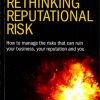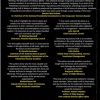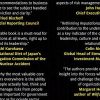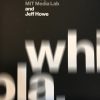Recent Posts on Facebook(2017/4/25)
Schedule – April 2017
The Path to 2025: Building the Ecosystem fr Alzheimer’s Innovation
Date & Time: April 26, 2017 (Wed) 9:00-13:00
*9:10-9:20 Welcome Remarks”
Venue: Kyoto International Conference Center
Plenary1 Global Aspect of Dementia
Date & Time: April 27, 2017 (Thu) 9:30-11:00
*10:30-11:00 “What kinds of knowledge and wisdom can we propose for next generations?”
Venue: Kyoto International Conference Center
From Facebook on 2017/4/23
From Facebook on 2017/4/19
From Facebook on 2017/4/18
From Facebook on 2017/4/17
From Facebook on 2017/4/14
Saionji-juku at Ritsumeikan University
I was invited to give a 4-hour class at Ritsumeikan University’s Saionji-juku (in Japanese) on Saturday the 28th, January. The audience of around 40 people was made up largely of professionals around the age of 40, an important phase when people are at the peak of their careers.
I had asked them to prepare for this session by reading my book “Kisei no Toriko (Regulatory Capture)” beforehand, along with some other handouts that I provided in advance, and this they did with an admirable enthusiasm. I noticed that many in the audience had copious notes, most probably their responses to various points made in the book.
Although this marathon session only had one 15 minute break, it seems that the robust content and lively discussion more than made up for the physically demanding schedule. It was a bit disappointing however to see only one woman among the 40 participants.
I have lectured at Ritsumeikan University before, once at the Ritsumeikan Asia Pacific University campus in Oita Prefecture 10 years ago (talk summary in Japanese), and once at their Kyoto main campus.
The day before my talk, I was invited by people connected to the Saionji Family to join a group of around 20 to listen to the Reverend Raitei Arima (in Japanese) and to also converse with him about the various hurdles that Japan and the world face and will be facing in the coming years.
All in all, a very enjoyable learning experience!
Two Books
The world is starting to show signs of instability. Whether it be the widening gap between rich and poor, the rapidly changing climate, or the unpredictability of what is in store for us, people are using the rapidly spreading internet to voice their fears and concerns. Another disconcerting trend is the malicious influence of deliberate misinformation, the rise of post-truth.
In the face of such looming crises, I am sure people are looking for guidance, a roadmap indicating what steps to take.
Indeed, the ability to respond to crises is the hallmark of any well-organized company or organization. For if the organization is unable to deal with an unexpected situation satisfactorily, it risks exposure to reputation risk that endangers not only the trustworthiness of the institution but also its very existence.
There is now a book, ‘Rethinking Reputation Risk: How to manage the risks that can ruin your business, your reputation and you’ that explores this very real threat. It also has cited a mention to the NAIIC on Fukushima Nuclear Disaster, so I was asked to review the galley of this book for comments.
The photo above shows the book cover. The back features blurbs from relevant experts endorsing this book. I too was asked, and I gladly obliged with 4 different rough ideas, but I was a bit disappointed to see that they were not edited further by professional editors to make them better.
”This thoroughly enjoyable book is a must-read for leaders of all organizations at all levels, right up to the board and its leadership.”
Dr Kiyoshi Kurokawa
Chairman of the National Diet of Japan’s Independent Investigation Commission
Another book I have featured here is ‘Whiplash: How to Survive Our Faster Future’ by Joi Ito of MIT Media Lab; I received a complimentary copy over the holidays. The book covers topics have been discussed with Joi for the past few years, and it seems to be turning into a great societal concern.
Yes, the only thing that is constant in this world is change.




